8 Ways Creators Can Monetize Their Content
Soundstripe Team
Soundstripe Team

Jul 26, 2022
So you’ve decided to monetize your online content —that’s awesome! You’re in for an amazing journey that, despite its ups and downs, will provide you with a great deal of experience and, ideally, a source of income.
But how can you achieve that?
This is exactly what we’ll be covering in today’s guide. There will be some ups and downs, whether you are growing a YouTube channel or starting to stream on Twitch. So here are 8 ways that you can monetize your content as an online creator.
So without further ado, let’s get started.
When it comes to being an online creator, there’s nothing better than building a community of loyal and engaged followers.
This will not only help you establish stronger relationships with them, but also allow you to monetize your content through subscriptions and memberships.
How does that work?
In a nutshell, you can create membership programs through which subscribers will receive some perks that non-subscribers won’t. In exchange for a monthly fee, such perks can be:
YouTube is a great example of how memberships work since it allows video creators to monetize their community by offering programs for their fans to join.
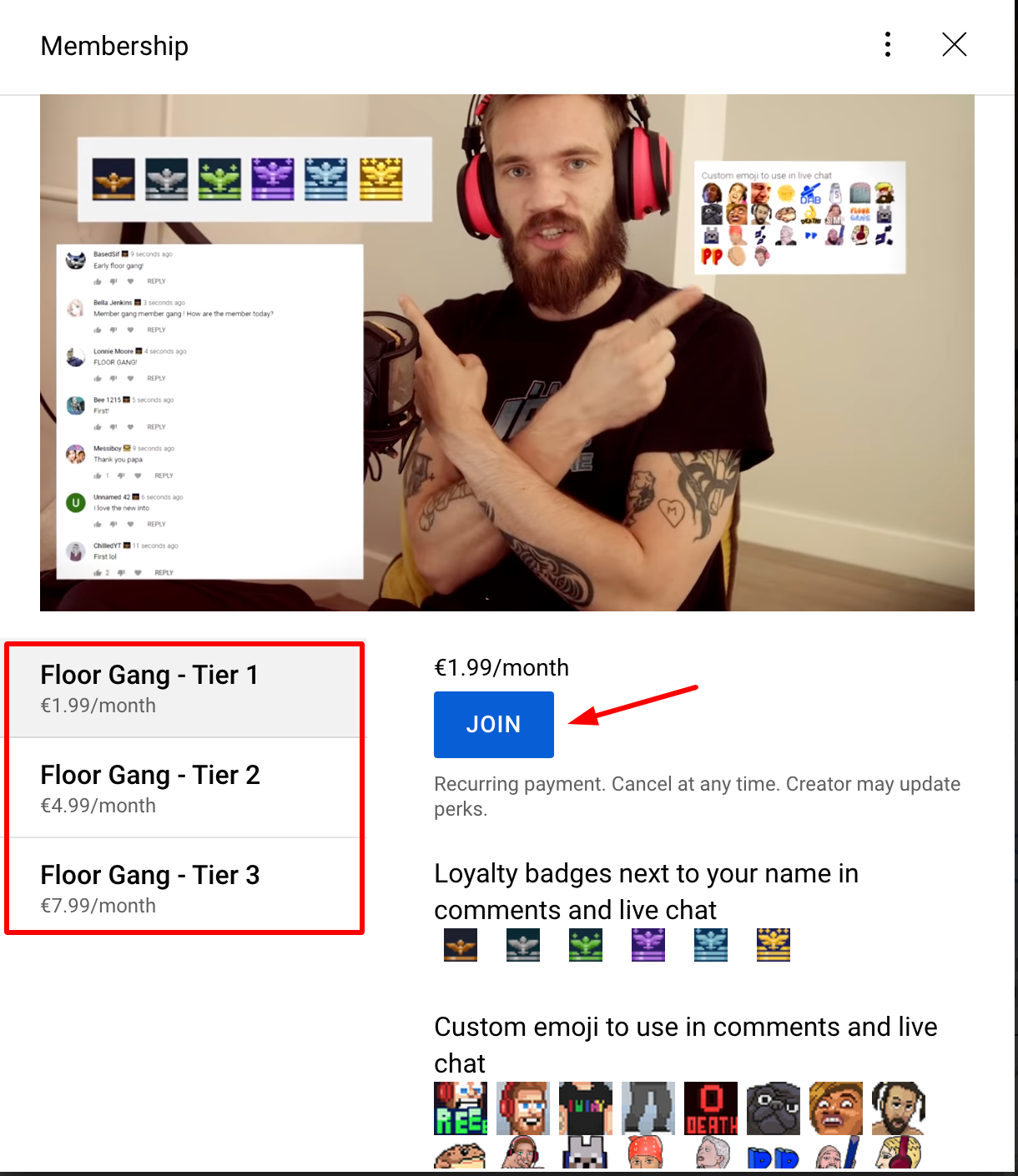
Keep in mind that as a creator you can even create your own membership site without having to rely on a third-party platform like YouTube or Twitch. Those platforms keep a commission from your monthly fee and don’t give you complete control over your subscribers.
If you’ve ever been on Twitch or any other platform allowing users to live stream, you might’ve noticed that most streamers monetize their content.
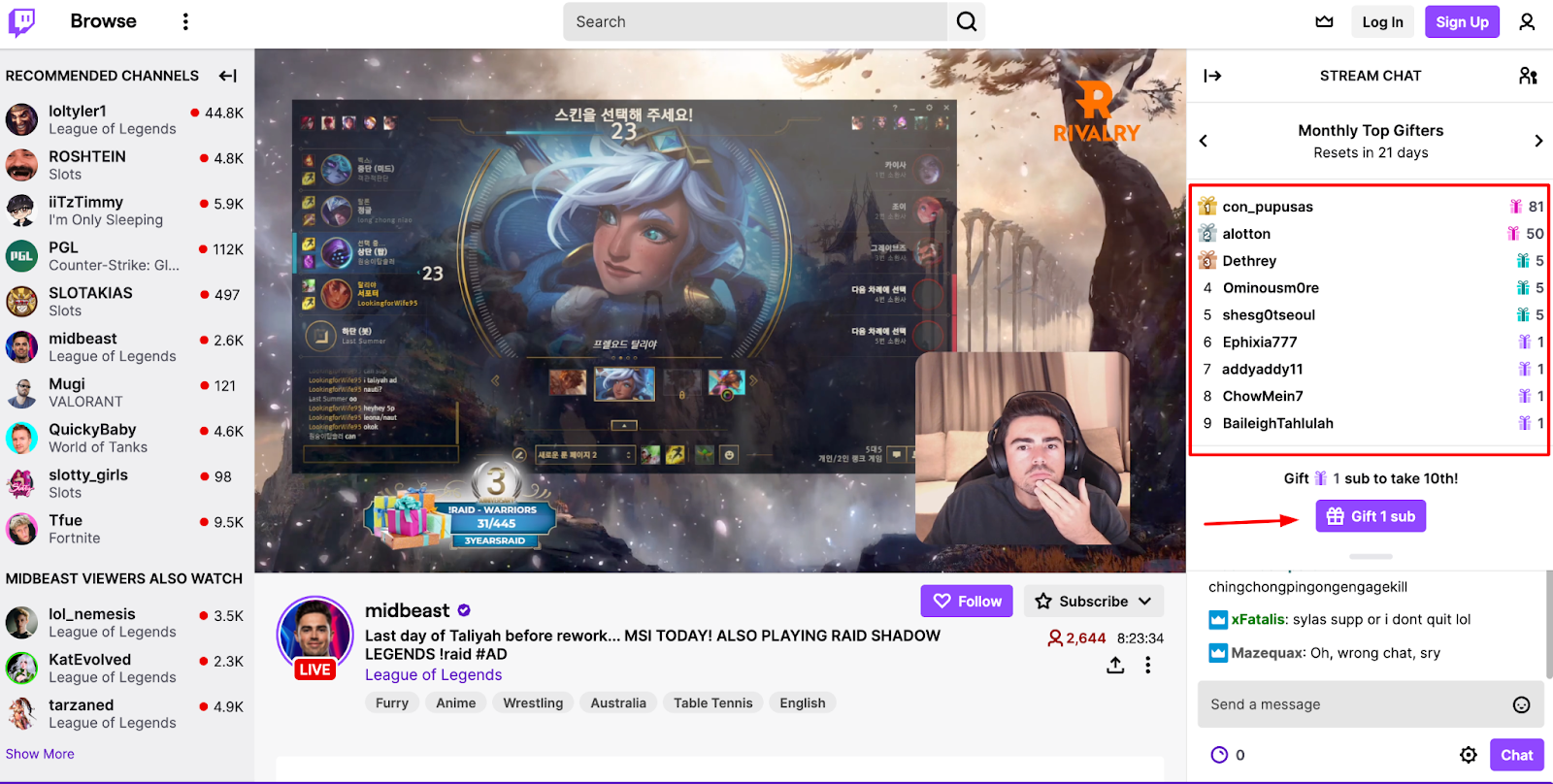
There are many ways that a livestream can be monetized, so let’s have a look at some of the most prominent ones.
In a nutshell, a video paywall keeps your content hidden until viewers pay to access it.
Simple, right?
This tactic can also be applied to livestreams, where viewers can access a livestream once they’ve paid a fee that the creator has set.
Pro tip: If you’d like to deliver pre-recorded, streamed content, you can always do that via a trusted VOD platform.
The second way a creator can monetize their livestreams is through donations.
Twitch, YouTube, and other platforms allow viewers to directly donate a certain amount of money to their favorite creator, usually in exchange for a shoutout or a badge.
Donations are possibly the most popular way streamers earn an income, so it should definitely be on the top of your list!
Instead of promoting products through paid ads, shoppable streams are the next big thing in interactive social commerce.
They’re basically a cross between a livestream and a product promotion, where creators can showcase their products in real-time for their viewers to purchase.
Interesting, right?
All in all, if video is an essential part for you as a creator, picking a website to host your videos is also something important to consider.
Digital products have been around for a while and there’s a great reason for that.
Here’s an example:

They basically come in all shapes and sizes, such as:
And allow their creators to sell them online to their audience for a certain price.
In the image above, you can see an eBook from Foundr, a popular business brand, on how to start an online store. What they’ve done is provide value about a topic they know a lot about, then made it available through a digital product.
This is a great example of how you can create your own products and offer them to your audience, as long as you pour your experience and creativity into a certain product.
How could online courses possibly be missing from our list? They’re one of the oldest and most famous ways of monetizing content since creating a course to share knowledge online is something that’ll forever be in demand.
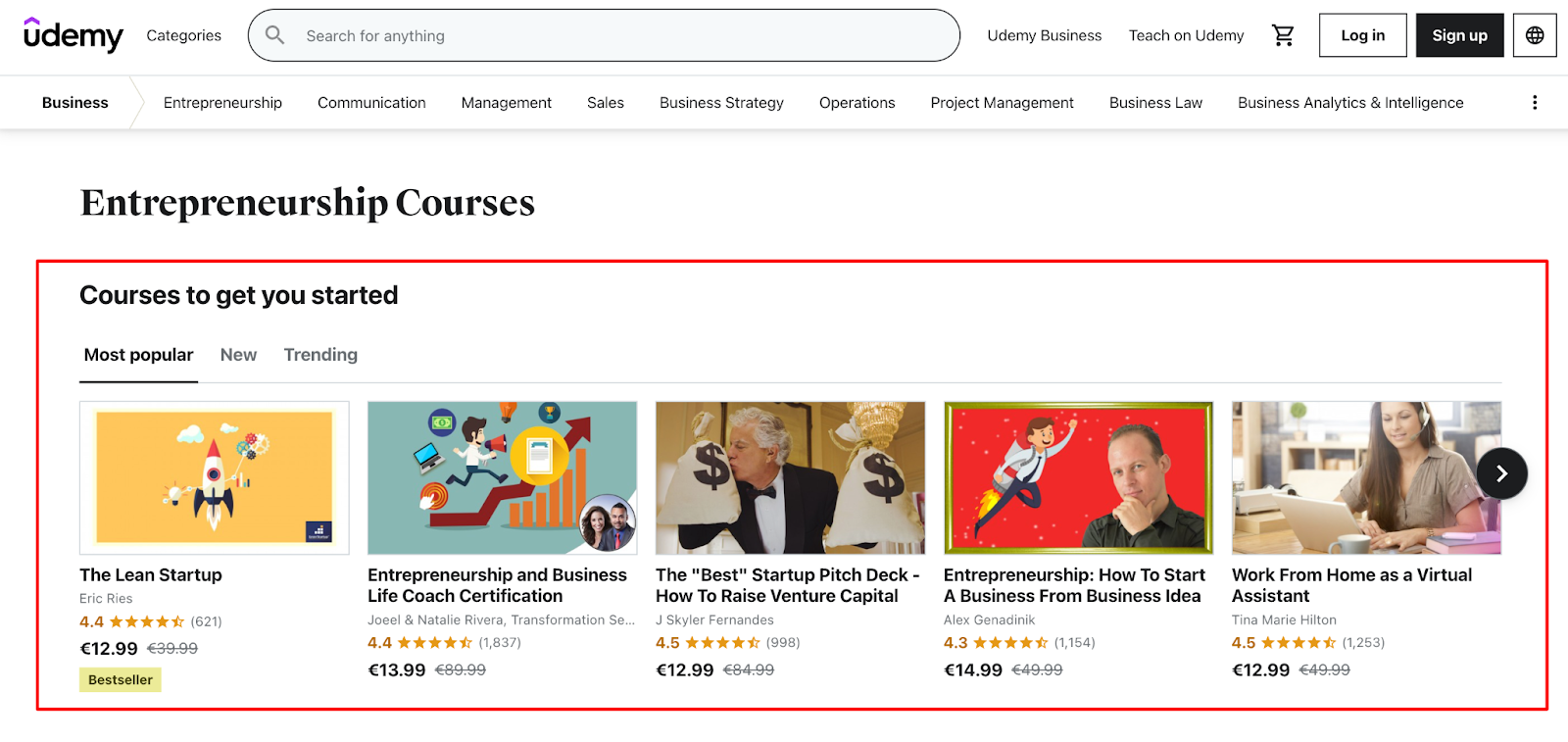
As a creator, all you have to do is choose a topic you have enough experience with to teach others, then pick the right platform to use. Udemy, Coursera, and Skillshare are just some of the eLearning platforms your courses can be hosted on, giving you the chance to establish your profile as a thought leader and earn money.
After all, with the rise of eLearning since the pandemic, this is the best time to create your own online course.
Not all online creators are streamers, YouTubers, or influencers. There’s a large number of photographers out there too, also looking for ways to monetize their passion.
If you fall under this category, you might want to know that you can sell your videos and photos online for other people to use.
Actually, what you’re selling is the permission for them to use your photos or videos on their website or a piece of content.
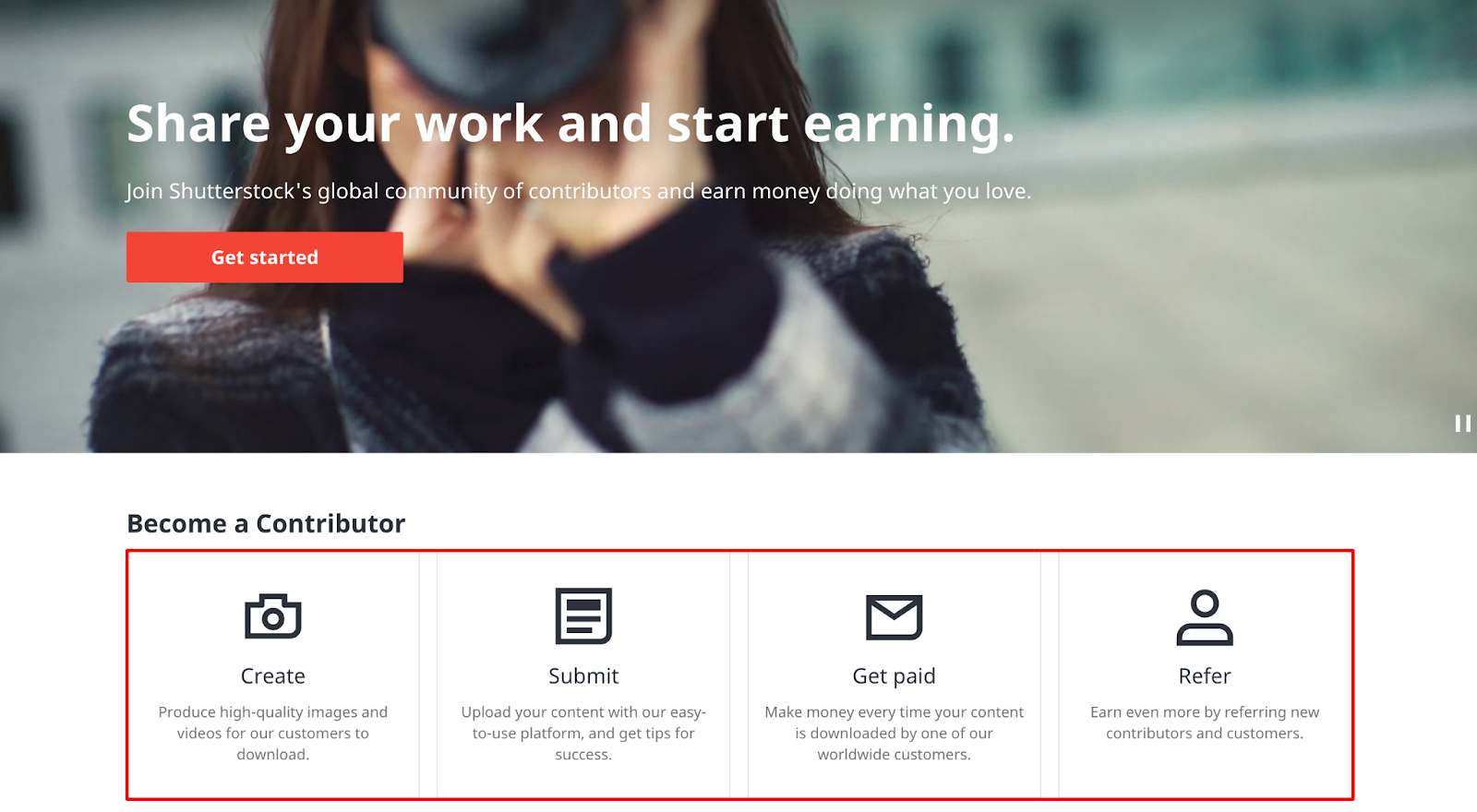
All you have to do is create some amazing content, upload it onto a platform like Shutterstock or Pexels and wait for people to purchase it for their own use.
We just saw how people can sell their photos online. You may be wondering if the same idea applies to music.
Absolutely!
As a musician, you can create your own music and upload it onto different platforms for people to download and use it on their livestreams, videos, podcasts, or anywhere else.
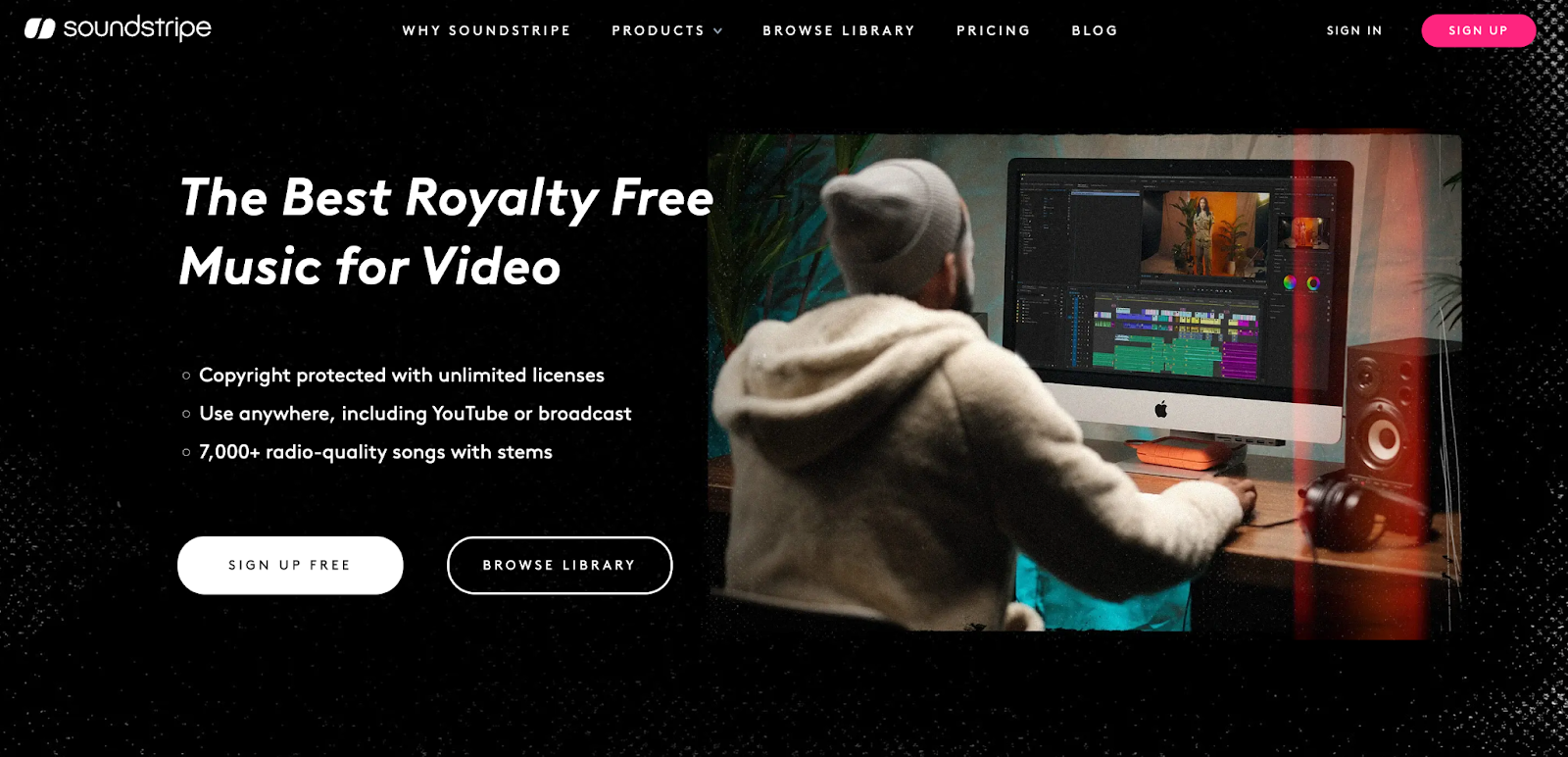
Once again, you’re usually not selling exclusive access to your music but the right for someone to use it online.
Pro tip: Each music company will have its own policies on working with new artists and licensing music. And if you are a creator who doesn’t have music production skills, you’ll most likely need to license royalty free music for your own projects. This just goes to prove how valuable — and in-demand — this industry is.
Unless you live under a rock, chances are you’ve spent some time scrolling through Facebook, Instagram, or TikTok.
This means that you’ve definitely spotted posts from creators collaborating with brands in order to promote a product.
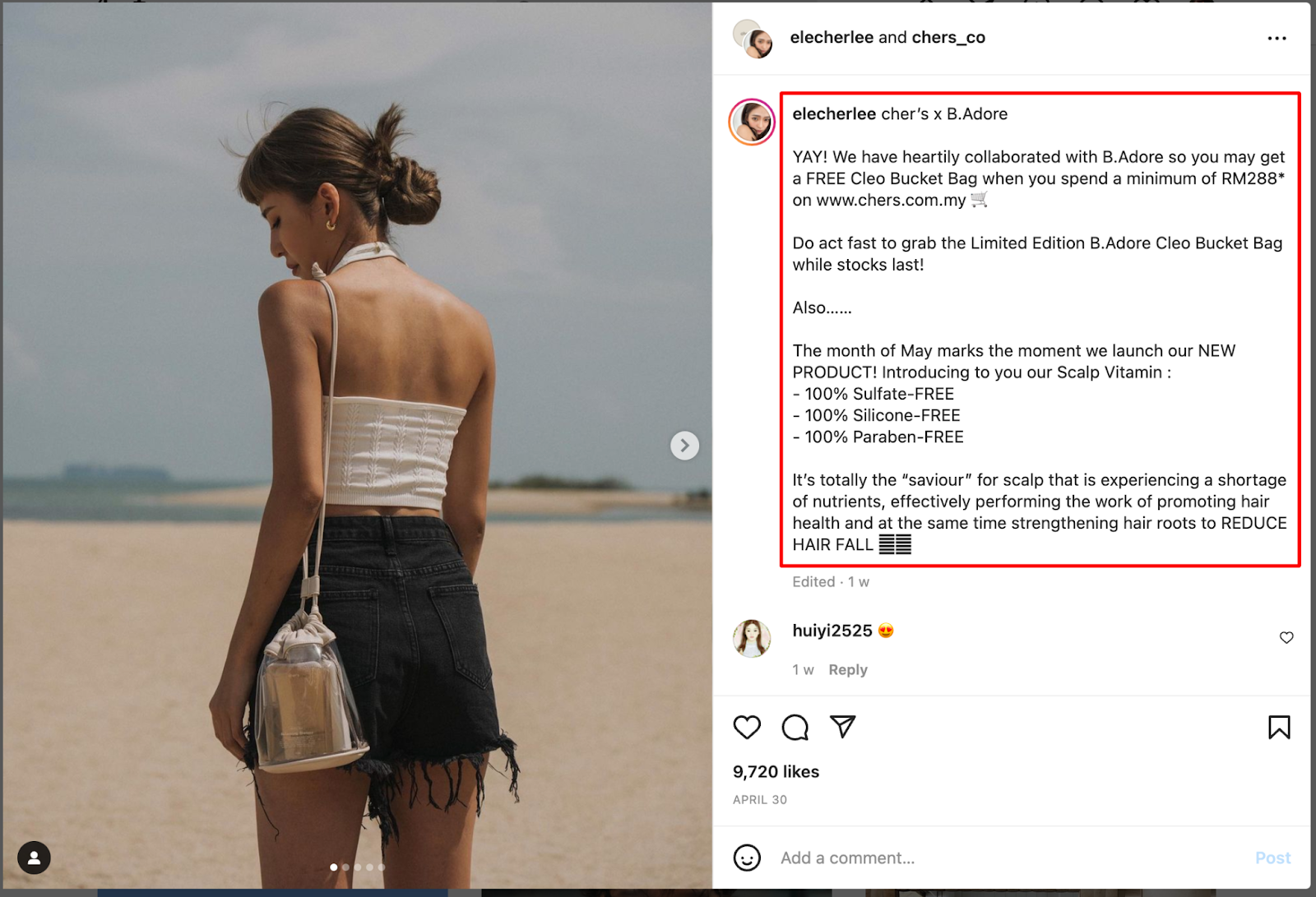
Brand collaborations are one of the best ways for content creators to monetize their content since they get the chance to partner with their favorite companies and showcase different products to their audience.
Keep in mind that this type of collaboration comes in a variety of content formats, so as a creator you’ll most likely be able to support it, depending on which social platform you mainly use.
Affiliate marketing is one of the most widely used ways to monetize content online.
To put it simply, it’s a model where a company provides creators with a unique tracking link, which leads to a certain product. Creators can then promote the link to their audience and earn a commission every time someone makes a purchase through the very same link.
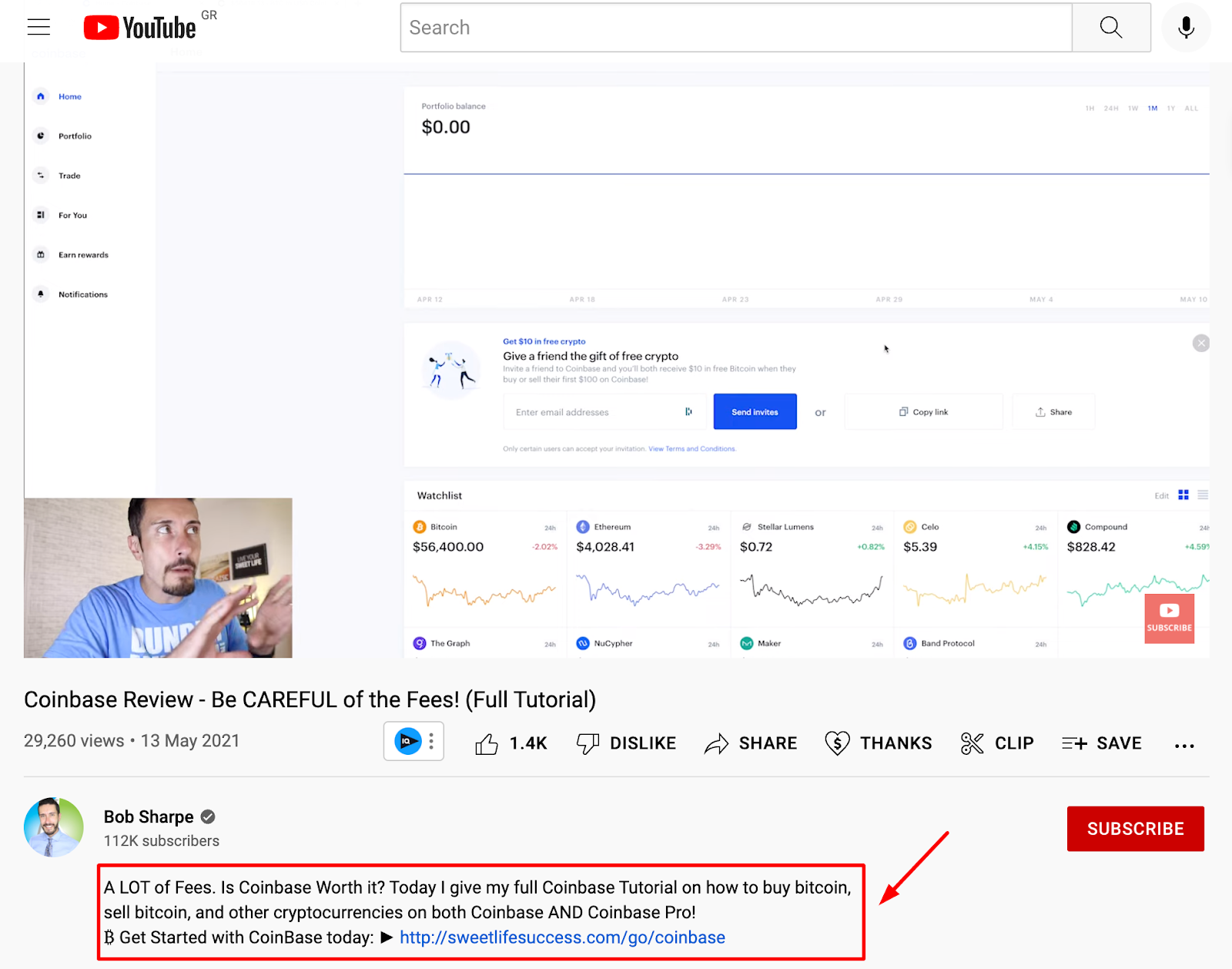
The example above is of a YouTuber reviewing a product and including an affiliate link in the video's description.
However, affiliate links can be placed in various types of content such as blog posts, videos, descriptions, newsletters, comments, and more. That flexibility makes these opportunities one of the most prominent ways a creator can monetize their content nowadays.
Although creators can monetize their content in more than 8 ways, we wanted to keep this guide clear and concise. We hope that you found one or more of the ways above useful enough to give a try, and we wish you the best of luck on your journey as a professional content creator.
And if you do find yourself in need of some copyright free music, sound effects, or other stock media, here are some additional resources to help you find what you need to produce — and monetize — your best video content:
This article is a guest contribution by Amir Shahzeidi, the Head of Search at Uscreen, an all-in-one video monetization platform that empowers video entrepreneurs and creators to monetize their content and build thriving businesses around their videos.